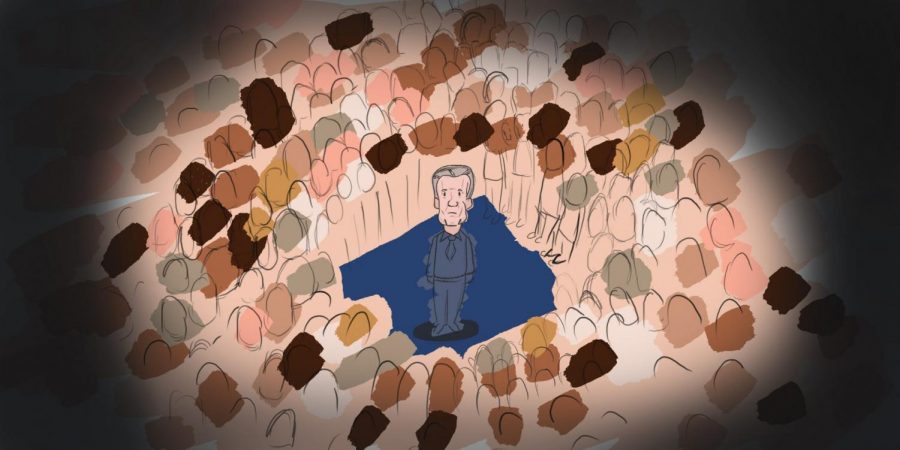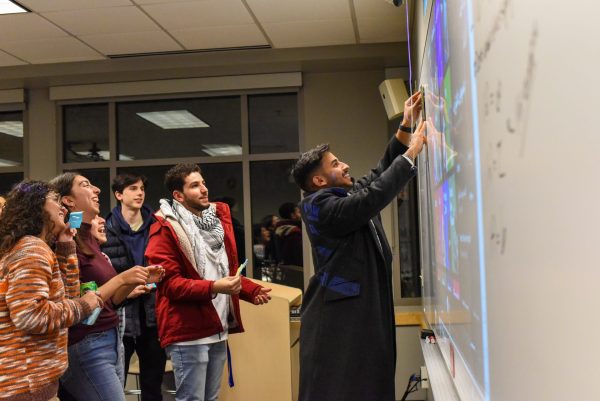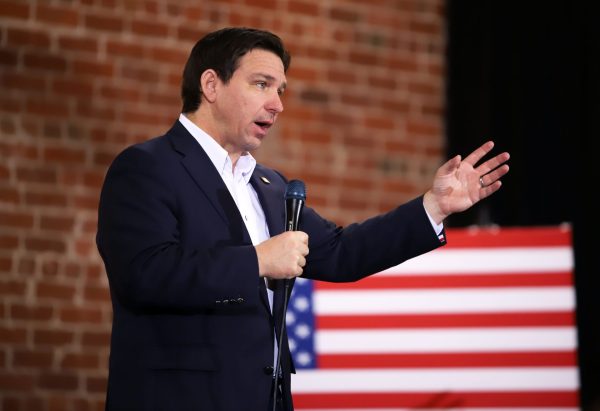Where DePaul students stand after the 2020 election
Credit: Alicia Goluszka
When the Associated Press called the 2020 presidential election, half of the U.S. erupted in whoops and hollers while the other sunk solemnly into the arms of loved ones.
The 2020 election’s significance was paramount, its outcome determining how the Covid-19 pandemic, which rattled the world and left over 2 million dead, would play out over the next four years.
Not only was Covid-19 a concern on both sides of the aisle but also the future of the country.
Democrats made pleas to protect federal welfare programs, which made Republicans wary of tax increases and government spending. And Republicans pushed for additional military spending and border security, which put Democrats on the defensive for human rights.
President Donald Trump told the Proud Boys to “stand back and stand by,” and President-elect Joe Biden said Trump was the “worst president America has ever had” during the first presidential debate on Sept. 29, 2020, a night that disturbed the nation.
The wins and the losses of congressional leadership are too many to name, but the one thing that stands out the most about the last four years to Wayne Steger, a political science professor at DePaul, is the divisiveness of the country.
“We have a society that fundamentally has broken down into two different camps with different value systems,” Steger said. “On one side we have ‘traditionalists,’ and on the other side we have what we call ‘cosmopolitanists.’ We have a really big cultural divide.”
Traditionalists and cosmopolitanists may seem like other words for “conservatives” and “liberals,” but the ideals aren’t necessarily political — their values are based on the cultural and environmental norms of certain groups of people. For example, Steger said cosmopolitanists are typically highly educated individuals living in metro areas who embrace new ideas, and traditionalists are usually minimally educated individuals who value community and religion.
Even though the president questioned the integrity of the 2020 election, Steger isn’t worried about an unpeaceful transfer of power.
“What this inauguration represents is, at least for this election cycle, the survival of the political system,” Steger said. “[Trump] isn’t going to stand in the way of [the inauguration] at this point. The fight for his part, for the moment, is over.”
But when it comes to the Jan. 6 attack on the Capitol, Steger predicts an uptick in violence for years to come.
“It’s not the end of violence,” Steger said. “This is just the beginning.”
DePaul College Democrats President Brandon Tejeras said the Capitol attack is a reflection of the state of the nation, and it will take efforts from every American to heal.
“It’s going to take a lot of effort from all of us and elected officials to try to walk back from that to get to a point where we can discuss and compromise and work together in a more democratic and cooperative fashion,” Tejeras said.
Tejeras also said he expects the Biden-Harris presidency to “turn down the temperature” of the executive branch.
“From my understanding, Biden is someone who values cooperation and working across the aisle and working to get things done in a bipartisan nature, so I think going forward, that will be a real hallmark,” Tejeras said.
Tejeras also recognizes that Biden’s moderate approach won’t be the resolution to the division in the country.
“I think it will be tense going forward, and it will be a little bit difficult to bridge those divides between the two parties and the divisions we have, so that will be a problem for President-elect Biden and Vice President-elect Harris and whoever comes in after them,” Tejeras said.
The DePaul College Republicans did not respond to The DePaulia’s request for comment.
According to data published by the Pew Research Center on Jan. 15, the percent of Republican-identifying Americans participating in the survey who approve of how Trump is handling his presidency decreased since August 2020 by 25 percent, yet 60 percent of survey participants still approve of the way the president is handling his job.
In an email interview with First Year Program and School of Continuing and Professional Studies instructor Craig Sautter, he explained how a Republican might view the past four years as a success.
“From a conservative point of view, not mine, the Trump administration accomplished much,” Sautter said. “From a true conservative’s point of view, the problem wasn’t the message, it was the messenger.”
Sautter cited a few wins for the Trump administration. For example, the vaccine for Covid-19 was approved in less than a year, and unemployment rates for Black, Latinx, Asian-Americans and women reached record lows before the Covid-19 pandemic
With President Trump leaving office after four years, many DePaul students breathe a sigh of relief, but Sautter is only “mildly optimistic” that things will “calm down” with Biden in the White House and urges students to not give up.
“The world is yours to remake and define,” Sautter said. “Remember the past, but be bold and forge the future.”












